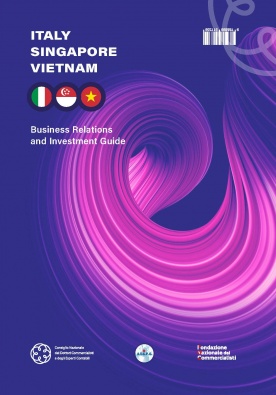What’s Driving Mergers and Acquisitions in Vietnam’s Healthcare Sector?
Healthcare is one of several industries predicted to lead M&As in Vietnam in 2023. Here’s what is happening in the sector and why it is attracting so much attention from healthcare firms looking to expand in, or enter, the Vietnamese healthcare market.
Although Vietnam’s M&A transactions have slowed, with 35 percent lower transaction value in 2022 compared to 2021, healthcare may buck the trend in 2023. In fact, PwC is predicting that healthcare will be one among a handful of the top sectors drawing FDI in Vietnam this year.
PwC is not alone in asserting that mergers and acquisitions in the healthcare sector will be popular in 2023 either.
Andy Ho, CEO of VinaCapital, has similarly said that the manufacture of medical equipment and pharmaceuticals, as well as drug distribution and medical services are becoming attractive to foreign investors.
With a rapidly growing middle class, an aging population, a number of challenges facing the public hospital system, and an increased awareness of the importance of good quality healthcare, the opportunities emerging for foreign firms are clear.
In the sections below, we will explore the factors behind the increasing demand for investment in Vietnam’s healthcare sector and identify the specific opportunities available in this area.
What’s driving interest in Vietnam’s healthcare sector
Vietnam’s healthcare market is opening up
Healthcare is attracting interest from foreign investors partly because the market is becoming more open.
The EVFTA, for example, has already eliminated tariffs on approximately 71 percent of pharmaceutical products, and the remaining tariffs will be gradually phased out upon the full implementation of the agreement.
As part of the agreement, Vietnam has committed to allowing EU-invested enterprises to import pharmaceuticals into Vietnam and to establish 100 percent foreign owned companies in the pharmaceuticals sector.
This should boost availability of high-quality medications for Vietnamese consumers, while also increasing the profitability of EU firms operating in the sector.
See also: Spain, Poland, Italy, Hungary Pharma Companies Gain Equal Access to Vietnam Market
The population is aging
The population of Vietnam officially entered an ‘aging phase’ in 2017 and is among the most rapidly aging countries in the world. Vietnamese people’s life expectancy is up to 75.4 years, and senior citizens could account for more than 17 percent of Vietnam’s population by 2030.
Vietnamese families are also very close. It is not unusual for extended families to live together for a long time and there is an expectation that children will take care of their parents into old age.
With the rising purchasing power of Vietnam’s middle-class consumers, the ability to allocate more funds towards improving the health of their parents increases too.
As a result, there is a growing demand for improved healthcare services to cater to the needs of elderly dependents.
Increasing awareness of preventative healthcare
Covid-19 thrust Vietnam’s healthcare sector into the spotlight, highlighting several challenges that the country encounters in delivering sufficient healthcare services.
Further, multiple public awareness campaigns were rolled out promoting preventative measures. Short videos, infographics, and catchy songs spread across social networking sites and proved popular with young people. These persuaded them to get vaccinated and reinforced the importance of taking preventative measures to avoid contracting COVID-19.
This has had a lingering effect on the public consciousness, whereby the greater population is taking a greater interest in their health and personal well-being.
Public hospitals struggling to meet demand
Overcrowding in public hospitals is an urgent problem for Vietnam’s healthcare system.
As a result, many urbanites with deep pockets often go overseas for treatment. The Ministry of Health estimates that around 40,000 people spend around US$2 billion every year to travel abroad for medical treatment.
The point being that, for a well-developed and financed private hospital network that can provide world class level healthcare in Vietnam, the demand is already there.
More generally, Vietnam’s total health spending has the potential to reach US$23.3 billion in 2025 and US$33.8 billion in 2030.
M&A activities in healthcare thus far
Pharmaceuticals
Pharmaceuticals have witnessed a number of M&As, including between: Mekophar (Vietnam) and Nipro Pharma (Japan), Imexpharm (Vietnam) and SK Group (Korea), Pymepharco (Vietnam) and STADA Service Holdings B.Vor (Germany), and Hataphar (Vietnam) and ASKA Pharmaceutical (Japan).
With lots of advantages in terms of cheap labor and low production costs, Vietnam’s pharmaceutical companies have become increasingly popular with foreign firms. These investors often set up their production line by licensing or buying shares of domestic enterprises, then export the products they produce to global markets.
In addition, the government has set an ambitious target for Vietnam to become a high value pharmaceutical production center producing US$1 billion in pharmaceutical exports by 2030.
Medical technology and telemedicine
The medical technology and telemedicine industries in Vietnam have not had any significant foreign investment, however, they are still in the early stages of their development.
Nevertheless, a COVID-19 follow up study found that up to 33 percent of patients at working age in Vietnam are choosing to continue to engage with healthcare providers via mobile apps even after the pandemic.
Moreover, many healthtech startupsy, such as JioHealth and Med247, have successfully raised capital from foreign investors, showing the potential for a robust healthtech sector.
Private hospitals and clinics
Private hospitals and clinics have an important role to play in easing the burden of severe overcrowding in public hospitals. In recent years, utilizing the private healthcare system has become increasingly popular with domestic private hospitals like Vinmec, FV, and Thu Cuc leading the pack.
See also: Vietnam’s Competition Law: Notes for M&A Transactions
Top foreign invested private hospitals in Vietnam
Vinmec International Hospital
VMCHoldings (Vinmec) is a healthcare system developed by Vietnam’s biggest conglomerate, Vingroup. Established in 2012, Vinmec currently has seven hospitals and four international standard clinics in operation. In 2020, Singapore’s GIC poured more than US$203 million into VMCHoldings.
Thu Cuc Health System TCI
Officially established in 2011, Thu Cuc TCI Health System is currently among the top three private hospitals in Vietnam with the leading quality score in Hanoi. Thu Cuc aims to open a chain of medical facilities nationwide, bringing high-quality medical services to people all over the country. In August 2020 Thu Cuc received US$26.7 million from VinaCapital.
FV Hospital
FV Hospital was established in March 2003 and is a 100 percent private hospital, consisting of two main shareholders, the parent company in Hong Kong and Singapore’s Quadria Capital. In addition to providing services to the Vietnamese people, FV also treats patients from neighboring countries, such as Cambodia, Laos, and Myanmar.
Outlook of Vietnam’s healthcare sector promising
The rapid development of Vietnamese society in both awareness of the importance of quality healthcare and the ability to pay for it, coupled with insufficient local healthcare services has created a lot of room for foreign firms to invest and grow their presence in Southeast Asia.
Mergers and acquisitions are one way that foreign firms can capitalize on this opportunity, as well as having a keen understanding of the sector and Vietnam’s free trade agreements.
For quality advice and more information on opportunities in Vietnam’s healthcare sector, contact the experts at Dezan Shira and Associates.
See also: Why Investors Should be Optimistic About Vietnam’s Healthcare Industry
About Us
Vietnam Briefing is published by Asia Briefing, a subsidiary of Dezan Shira & Associates. We produce material for foreign investors throughout Eurasia, including ASEAN, China, India, Indonesia, Russia & the Silk Road. For editorial matters please contact us here and for a complimentary subscription to our products, please click here.
Dezan Shira & Associates provide business intelligence, due diligence, legal, tax and advisory services throughout the Vietnam and the Asian region. We maintain offices in Hanoi and Ho Chi Minh City, as well as throughout China, South-East Asia, India, and Russia. For assistance with investments into Vietnam please contact us at vietnam@dezshira.com or visit us at www.dezshira.com
- Previous Article India-Vietnam Look to Boost Trade in Agriculture
- Next Article Investing in Vietnam’s Startup Sector: Latest Issue of Vietnam Briefing Magazine
































